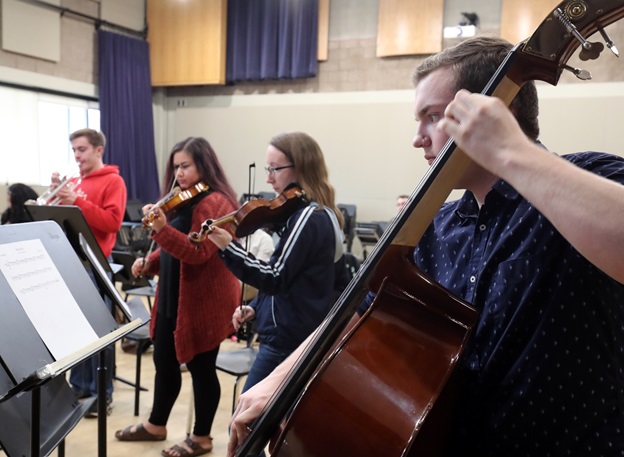Music and language learning have been linked by neuroscientists. Teaching children music at a young age may help them become better readers later in life. The brain’s network for music processing and language formation overlaps. From an evolutionary standpoint, the human brain created music processing much before language and then utilized that processing to create and acquire language. Babies see language as music from the moment they are born. The rhythm and melody of language grab their attention first before they grasp the meaning. Check out some amazing music school online!
Children who have been musically educated tend to be better readers.
As a result, before children can learn to read, they must be able to distinguish speech apart from other noises. Music aids them in their endeavors. Making sense of what you’ve read is the goal of reading. The capacity to discriminate between sounds in words and fluency in reading are only two of the talents that come together to help us make sense of what we read.
What can be done by parents and educators?
Parents chat and sing to their newborns from the time they are born, and that is when children begin to learn languages. Singing to your infant establishes a relationship and involves their auditory processing network at the same time. Babies bond with their parents and community largely via their voice. Regular attendance at a structured music class will help develop musical skills that are crucial for learning to read in toddlers. Seeking out lessons that incorporate dance, singing, and reacting to both sound and stillness are all critical steps in the education process. They should make music using high-quality instruments and toys.
To help your child succeed in school and in language development, search for well-structured music learning programs taught by skilled instructors starting in preschool. Reading is aided by the songs, rhymes, and rhythm exercises that children participate in throughout preschool and daycare. The abilities students learn in music programs should be introduced one at a time. When it comes to music education and music school, parents and teachers should encourage their children to sing in tune, play instruments, and dance in unplanned and organized ways to the music. Music education should include instruction in reading musical notation and symbols for the children. This helps to strengthen the relationship between sign and sound, which is essential for reading. It’s essential to engage in active music learning in order to reap the benefits. Loud music has no positive impact on children’s language development and may perhaps make it more difficult for them to differentiate speech from other sounds.
This is not to argue that youngsters must be left in complete stillness in order to learn well. This is not accurate at all. They need a wide range of sound settings, as well as the flexibility to choose the level of auditory stimulation that best suits their needs. Some pupils need noise to concentrate, while others need solitude, and each student’s choice changes depending on the sort of learning they are required to complete. It’s not just how loud the class is that matters when it comes to sound environments. It all comes down to the sound quality. Children’s capacity to learn is impacted by anything from squeaky brakes every three minutes to noisy air conditioning to background music that works for some but not others.

